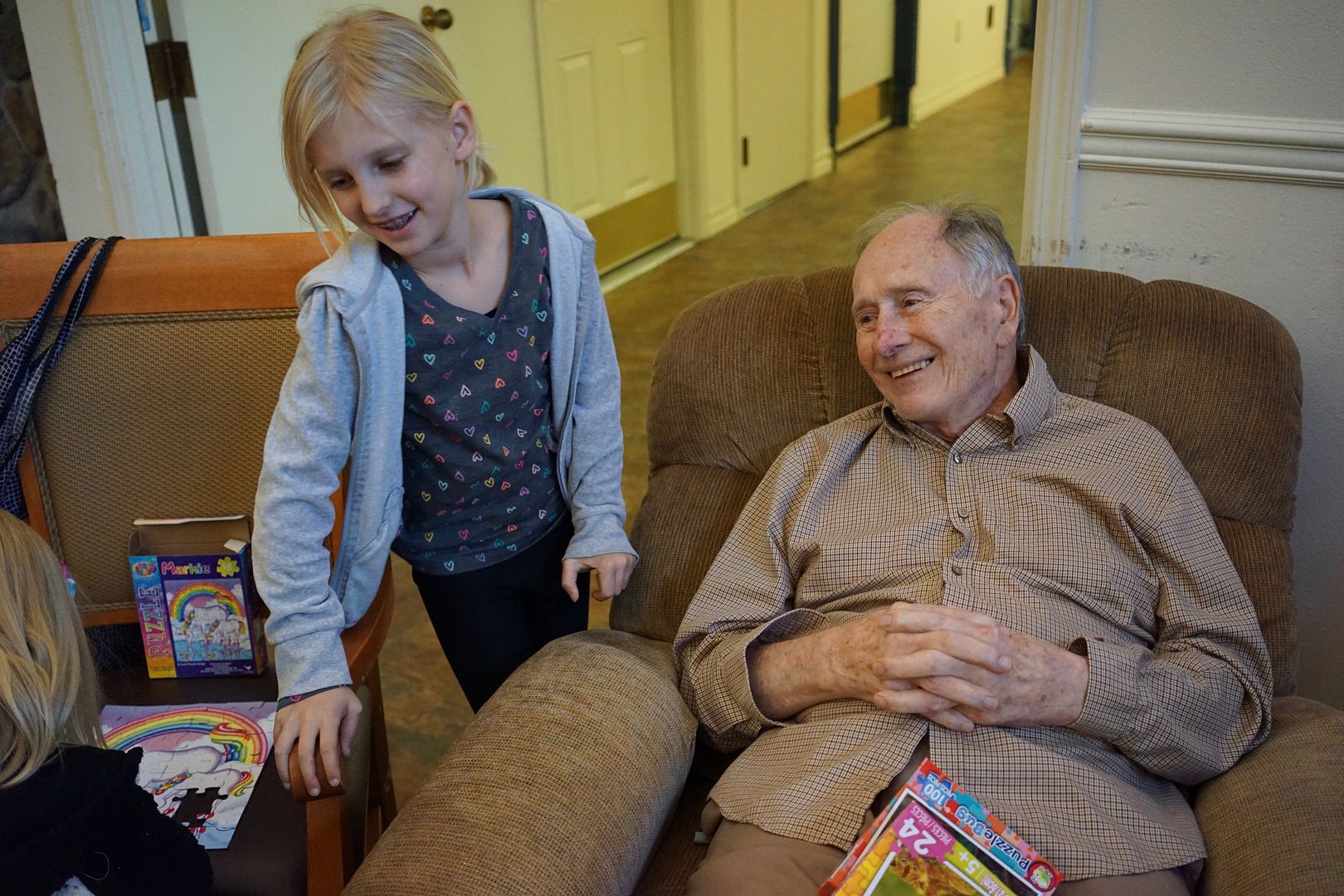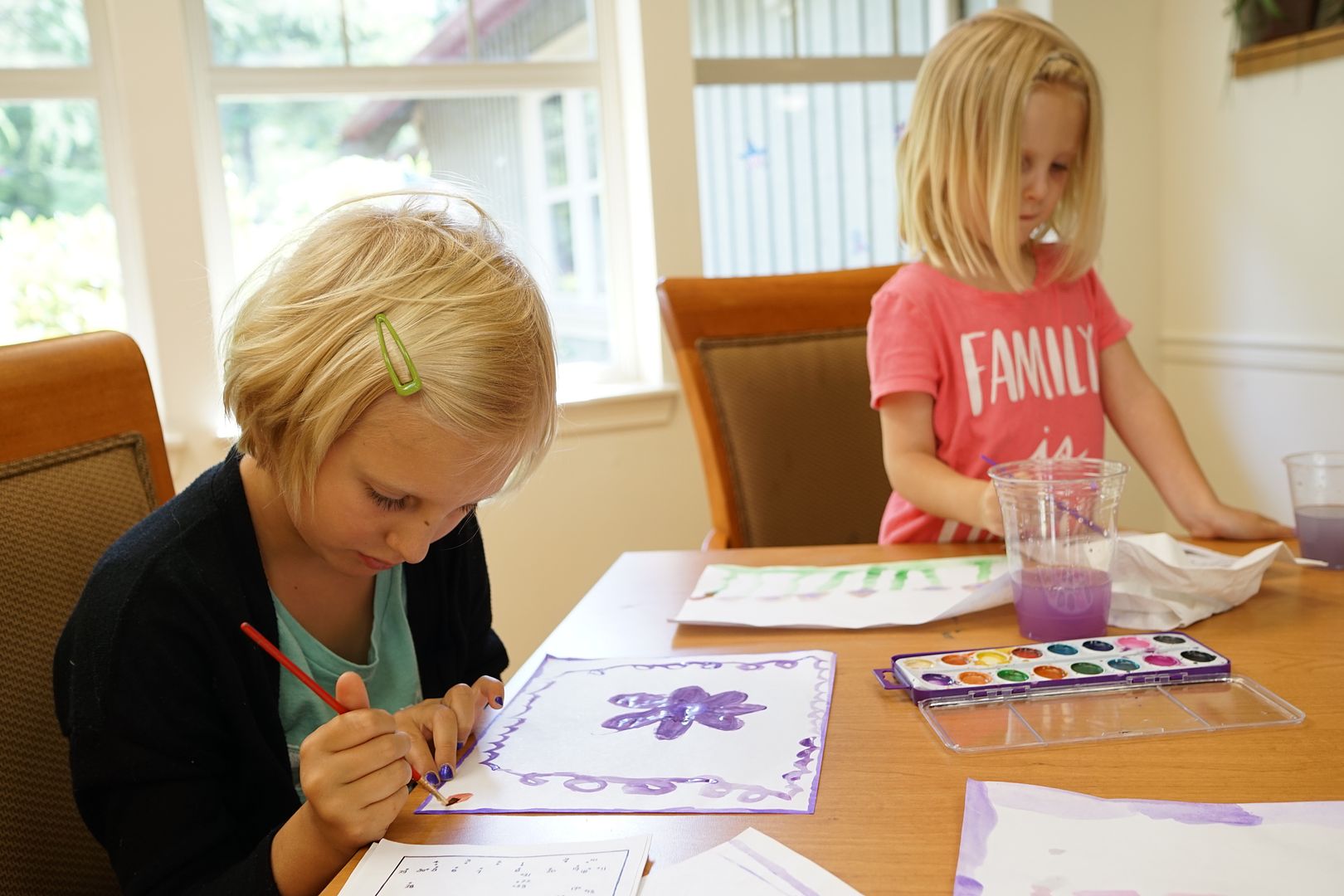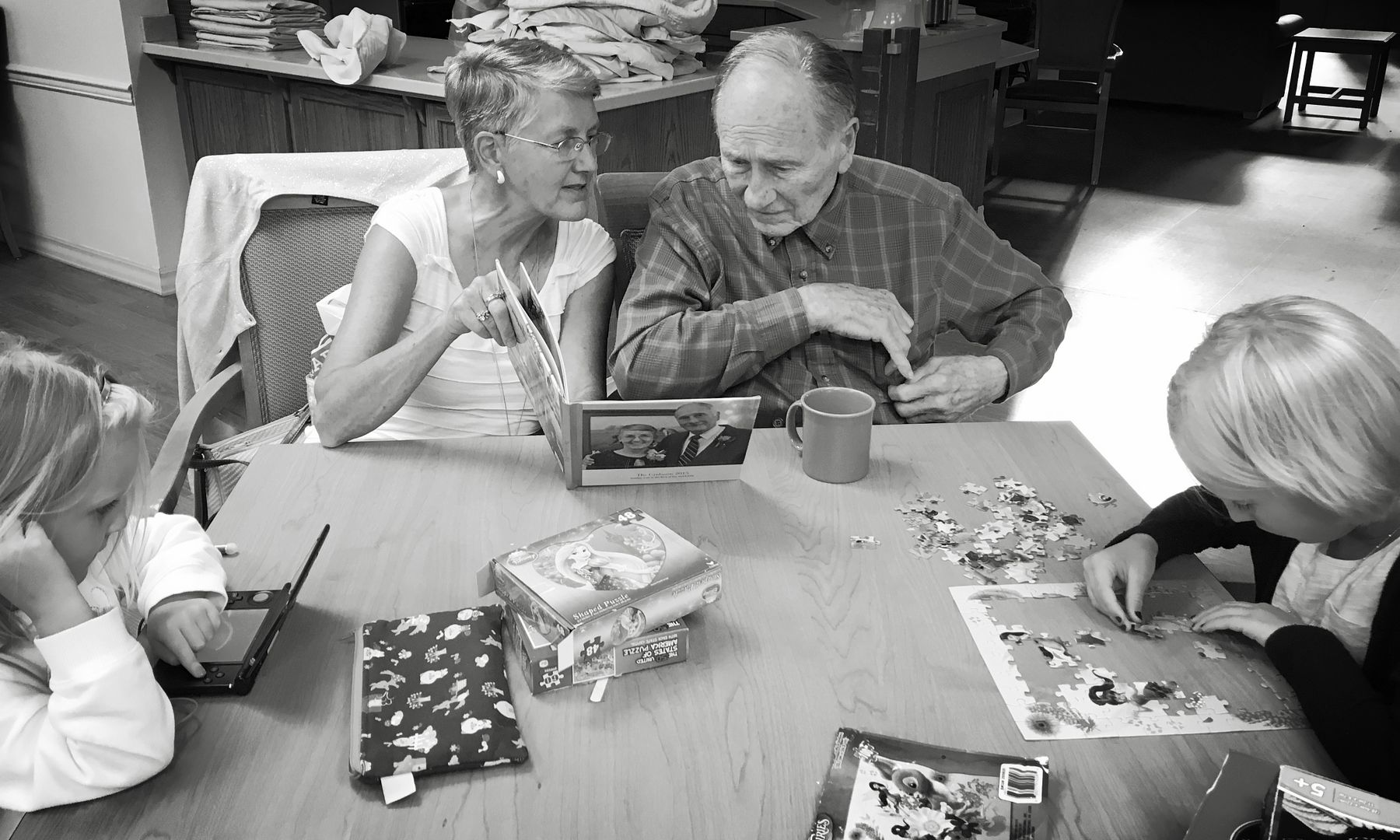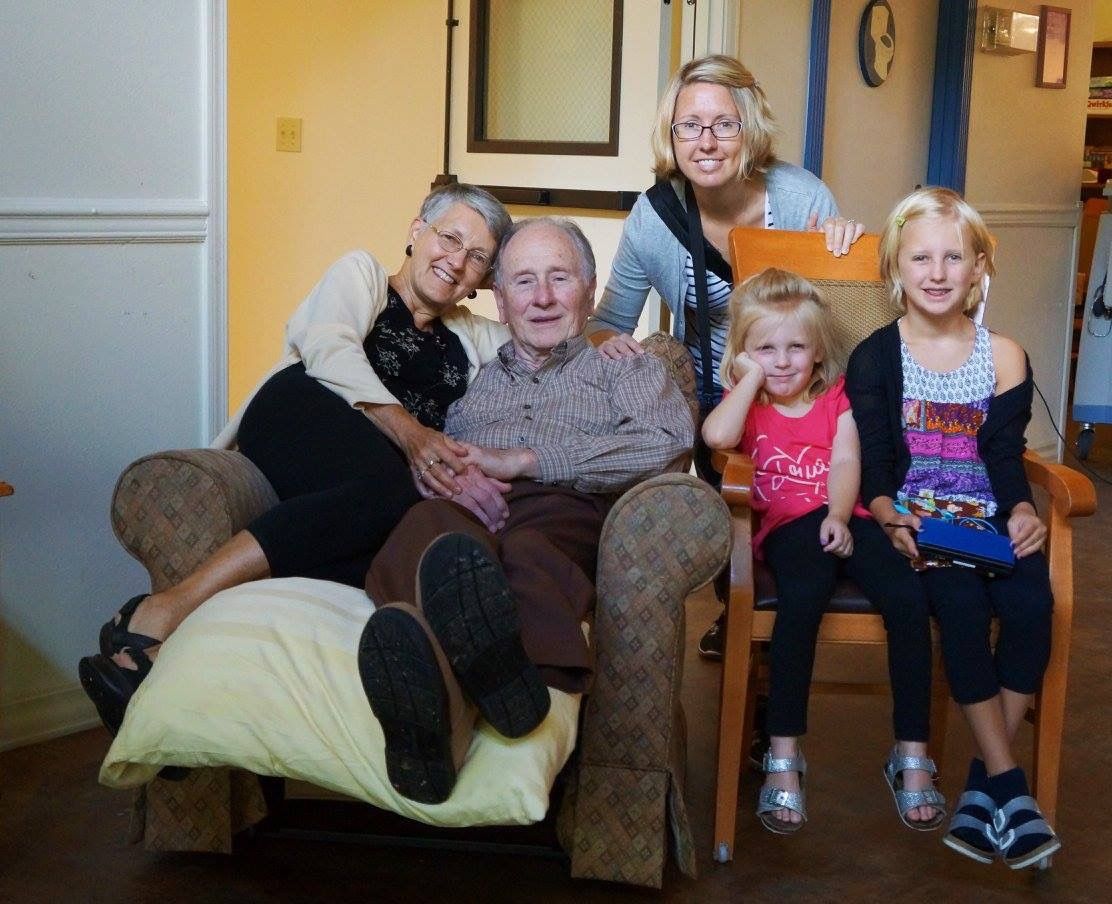However, I've found that the more you prepare your kids ahead, and normalize (talk through) any potential obstacles the smoother the visits can be.
For example before going to the care facility take some time and talk with your kids about how your parent/grandparent/loved one is doing. What their current limitations are (sight, walking, talking, ability to feed themselves, etc) as well as what they can still do.
Also talk ahead about:
1. Smells - Poop/Urine
2. Sounds - Screaming, singing, bad words, laughing
3. Sights - People in wheelchairs, strangers smiling at or talking to them.
4. Rules - Boundaries, where they can and cannot go (for example bathrooms in the units may be off limits), food is just for residents, etc.
Try to have a conversation about what they might see and what that would feel like to them, how they might react. You could even do a little role playing for what to do if someone wants to talk to them, etc. Remember that your loved one might not be exhibiting these behaviors, but someone else in the facility may be.
Also talk about how the kids should act, what is and isn't allowed. I'd suggest low voices, no sibling fighting, no running, etc.
Come Prepared
Bring activities for the kids to do alone, together as well as with your loved one depending on how the visit is going. When we first visited my dad my oldest was pretty apprehensive and in order to have her feel safe/comfortable she spent most of that first visit playing her Nintendo DS. She was with us, but able to be in her own little world. As she became more comfortable on subsequent visits the video games weren't necessary anymore and she was able to interact with us.
Consider bringing artwork that your kids have made or pictures of them to put up in your loved ones room. That is a way to keep them engaged and to show that they are important to your loved one's space.
Activities to do Alone:
Game Players, books, tablets with games/videos
Activities to do with sibling/others:
Coloring, puzzles, painting, simple games
Activities with your loved one:
My dad joined in a little bit with painting (with some assistance). He had watched the kids painting and I decided to see if he'd like to try and he did! Now all of the above activities can be done in the same area as your loved one, our kids did simple puzzles (to be finished quickly and put away easily) at the table with dad. He enjoyed watching them/us even if he didn't actively participate.
Another activity is reading together. Illustrated children's books like James Herriot's Treasury of Children's Stories were popular with the kids and my dad, they all appreciated the beautiful drawings. You could also look at photo books together (like the personalized ones we made for him).
If your loved one is still able to talk and communicate somewhat try to engage them in questions and be ready to write down what they say, as these gems are little gifts. Or perhaps have your phone make recordings of your conversations.
And my best advice, take photos! Take as many photos as possible of your kids and your loved one. Depending on their ages your children may not remember the visits or even that they knew your loved one, so photos can help fill in the gaps when you tell them about this special person in the years to come.
Do's:
- Prepare your kids ahead.
- Make sure they're well rested, well fed before a visit (and bring snacks, for your loved one too) and have used the bathroom.
- Bring activities and things to do.
- Be flexible, you may need to adjust the visit depending on how your loved one or kids are doing. Consider taking a bathroom or drinking fountain break if your kids are struggling.
- Answer their questions, even if it's just to tell them that you'll talk about it later if it isn't an appropriate time right then.
- Give lots of positive feedback to your kids during and after visits. Try to leave on a positive note.
Do Not:
- Make the visit too long, have a reasonable amount of time for all involved. A few shorter visits (2 in a day for example) are better than one really long one.
- Expect or force your kids to preform if they don't want to, no forced piano playing or singing for example.
- Force hugs or kisses by your kids. Let them interact with your loved one as they feel comfortable.
Gift Ideas for Loved Ones with Dementia










No comments:
Post a Comment